Introduction: Why Toddler Meal Prep Works
As a parent and nutrition writer, I know how chaotic mornings can get with a toddler. Between work, school runs, and household responsibilities, ensuring your child eats nutritious meals can feel impossible. That’s where meal prep comes in. With just 60–90 minutes on the weekend, you can create healthy, toddler-friendly breakfasts, lunches, snacks, and dinner components that save time, reduce stress, and encourage consistent nutrition.
Meal prepping for toddlers is not about perfection — it’s about creating safe, repeatable, and flexible building blocks that can be mixed and matched throughout the week. Following pediatric nutrition guidance from the American Academy of Pediatrics (AAP), this article provides a step-by-step 7-day plan, including recipes, storage tips, toddler-friendly portion sizes, and safety instructions.
Quick reality check — why this actually works
One focused 60–90 minute prep session can produce breakfasts, lunches, snacks and components for dinners for a whole week. You’ll spend less time deciding what to give your toddler, reduce mealtime stress, and keep nutrition consistent — all without making “fancy” food.
This plan uses repeatable building blocks — egg muffins, shredded chicken, veggie mash, oat bites — that mix-and-match into toddler plates so you’re not cooking every night.
Toddler Nutrition Goals: What to Include
Toddlers require small, frequent meals that provide protein, healthy fats, complex carbohydrates, and micronutrients. A balanced plate typically includes:
- Protein: eggs, yogurt, cheese, chicken, beans, or fish (age-appropriate).
- Whole grains/starchy vegetables: oats, whole-grain pasta, rice, or sweet potato.
- Fruit & vegetables: soft-cooked, bite-sized pieces or purees.
- Healthy fats: avocado, nut/seed butter (if age/allergy-appropriate), olive oil.
- Fluids: breastmilk or formula for infants; whole milk and water for older toddlers.
Portion Tip: Toddlers generally eat 1–4 tablespoons per item depending on age. Adjust based on your child’s appetite and growth needs.
Safety & toddler feeding rules (non-negotiable)
- Cut round foods (grapes, cherry tomatoes, hot dogs) lengthwise and then quarter them. No coins.
- Cook hard veg (carrots, broccoli stalks) until fork-tender; serve in small pieces.
- No whole nuts, popcorn, or hard candy until old enough to chew well.
- Supervise all meals; feed toddlers sitting upright.
- Cool hot food completely before serving. Use a food thermometer when reheating — aim for steaming hot then cool to a safe temp.
If in doubt, check with your pediatrician about allergen introduction or any swallowing concerns.
Equipment & pantry staples to have on hand
Keep these ready to hit the 60–90 minute prep target:
- Oven + baking sheets, mini muffin tin
- Blender or food processor
- Rice cooker or Instant Pot (optional but speeds things up)
- Nonstick skillet, small pot, spatula
- Airtight containers (various small sizes), freezer bags, labels
- Silicone muffin liners, measuring cups/spoons, immersion blender (optional)
Pantry staples: rolled oats, whole-grain pasta/rice, canned low-sodium beans, nut or sunflower seed butter, olive oil, canned tomatoes, frozen peas/corn/berries, Greek yogurt, eggs.
Batch-cook Sunday timeline (60–90 min, realistic multitasking)
This exact order minimizes hands-on time and uses oven time to prepare multiple items.
0–5 min — Preheat oven to 350°F (175°C). Line baking sheets and grease mini muffin tin.
5–25 min — Mix & bake Mini Veg & Cheese Egg Muffins (18–20 min bake). While muffins go in, start rice/quinoa.
25–40 min — Roast a sheet pan of sweet potato cubes + carrot coins (25–30 min). Put on same rack if space.
40–55 min — Prepare Oat + Banana Pancake Bites (bake 12–14 min). Pop them in oven after muffins.
55–75 min — Cook / shred chicken (oven, instant pot or stovetop). Make No-Bake Energy Bites while chicken cools.
75–90 min — Assemble yogurt parfait jars, cool all hot items on racks, portion, label and refrigerate/freezer.
You’ll be multitasking; use timers for each oven item.
7-Day sample plan (mix-and-match building blocks)
This is toddler-sized (1–3 years). Portions: 1–3 tbsp per component depending on age/appetite.
Day 1:
- Breakfast: 2 mini egg muffins + sliced banana.
- Snack: 1 small energy bite.
- Lunch: Shredded chicken rice bowl (2 tbsp chicken, 3 tbsp rice, 2 tbsp soft roasted veg).
- Snack: Yogurt parfait spoon.
- Dinner: Veg & bean mash + small soft pasta.
Day 2 — rotate similarly (see detailed plan at end). Use leftovers & freeze extras.
Detailed recipes — fully explained, step-by-step (with troubleshooting, freeze/reheat, swaps)
Below are the core building blocks. Each recipe includes yields, detailed methods (with sensory cues), time, storage, reheating, toddler portioning, and allergy swaps.
1) Mini Veg & Cheese Egg Muffins
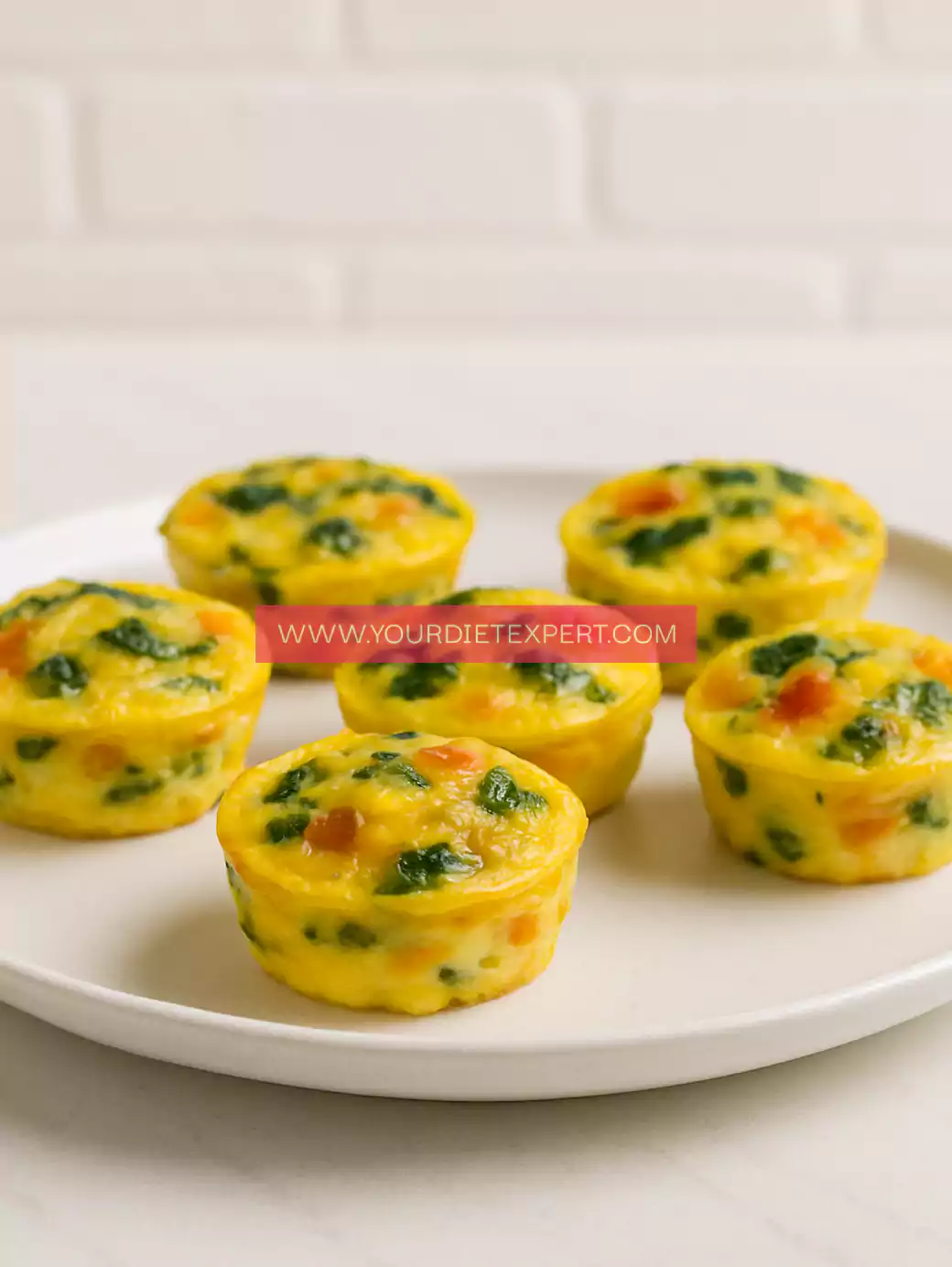
Yields: 12 mini muffins (about 6 toddler meals of 1–2 muffins)
Time: Prep 10 min | Bake 18–20 min | Cool 15 min
Ingredients
- 6 large eggs
- 1/4 cup milk (dairy or fortified plant milk)
- 1/2 cup finely grated carrot (use small holes of grater)
- 1/2 cup finely chopped spinach or zucchini (steam if using zucchini raw)
- 1/2 cup mild shredded cheddar or gouda (optional)
- 1/4 tsp salt (optional) and a pinch of pepper
- 1 tsp olive oil or nonstick spray for tin
Method — step-by-step
- Prep pan & heat oven: Preheat to 350°F (175°C). Lightly oil a mini muffin tin or place silicone liners. Place a rack in the middle of the oven.
- Prepare veg: If using spinach, finely chop raw and squeeze lightly to remove excess water. If zucchini, grate and place in a clean towel and wring out moisture — too much liquid makes muffins soggy. Grate carrot finely so tender pieces cook quickly.
- Whisk base: Crack 6 eggs into a medium bowl. Add milk and whisk until uniform with no streaks. Whisking aerates the eggs slightly and results in fluffier muffins.
- Fold ingredients: Add grated carrot, chopped spinach, and cheese (if using). Stir gently to distribute evenly. Taste (with a spoon) and add a tiny pinch of salt if you use salt (avoid oversalting for toddlers).
- Fill tin: Using a small spoon or piping (use a freezer bag with the corner cut), fill each mini cup about 3/4 full. They will rise a touch but should not overflow.
- Bake: Place tin in oven and bake 18–20 minutes. Sensory cues: tops should be set and slightly golden at edges; a toothpick inserted center comes out clean and there’s no liquid.
- Cool fully: Transfer muffins to a wire rack—cool at least 15 minutes before storing. Hot centers will steam and make soggy condensation if packed hot.
- Portion & label: Place 1–2 muffins per toddler container. Label with date.
Make-ahead & storage
- Refrigerate up to 4 days.
- Freeze in single layers on a tray until solid then bag in freezer bags for up to 3 months.
- Reheat from fridge 15–20 seconds in microwave, stir center to test temperature. From frozen: microwave 40–60 seconds (depending on wattage) until hot.
Toddler serving
- 12–18 months: 1 mini muffin.
- 18–36 months: 1–2 muffins.
Troubleshooting
- Soggy centers: veg had excess moisture—squeeze and remove liquid next time.
- Rubber texture: overcooked egg — decrease bake 1–2 minutes and check.
Allergy swaps
- Dairy-free: omit cheese or use dairy-free shredded cheese.
- Egg alternative: use 1 cup chickpea flour + 1¼ cups water + pinch turmeric and baking powder for a vegan “egg” bake (method differs).
Approx nutrition (1 mini muffin): ~55–70 kcal; 3–4 g protein.
2) Oat + Banana Mini Pancake Bites (oven method)
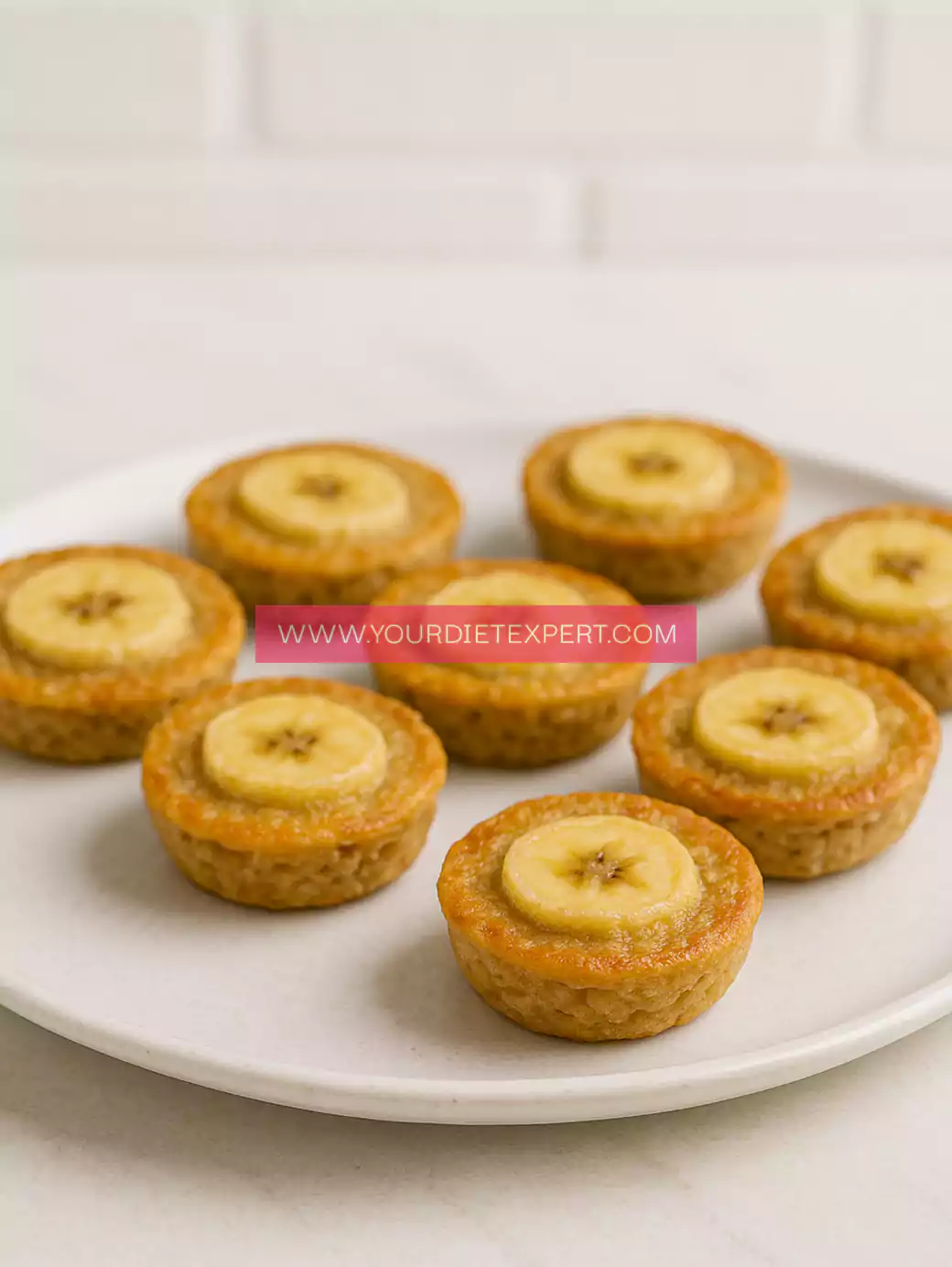
Yields: ~18 mini bites (6 toddler breakfasts)
Time: Prep 10 min | Bake 12–14 min | Cool 10 min
Ingredients
- 2 cups rolled oats (or 1½ cups oat flour)
- 2 large eggs
- 1 ripe banana, mashed well
- 1 tsp baking powder
- 1/2 cup milk (or milk alternative)
- 1/2 cup grated apple or 1/3 cup berries (fresh or thawed)
- 1 tsp cinnamon (optional)
Method — step-by-step
- Make oat flour (if needed): Place oats in blender/food processor and pulse until a fine flour. This gives smoother texture for tiny mouths.
- Preheat oven & prep tin: Preheat to 375°F (190°C). Grease mini muffin tin or use silicone liners.
- Mix wet ingredients: In a bowl, mash banana thoroughly (no large chunks). Add eggs and milk and whisk until combined.
- Combine dry & wet: Add oat flour, baking powder, and cinnamon. Mix only until just combined. Fold in grated apple or berries. Batter will be scoopable but not runny — if too thick add 1–2 tbsp milk.
- Spoon into tin: Fill mini cups about 3/4 full. Smooth tops slightly.
- Bake: Bake 12–14 minutes. Sensory cues: tops are slightly springy and edges are lightly golden. A toothpick will come out mostly clean.
- Cool fully: Transfer to a rack — cooling prevents sweat and sogginess.
- Portion & serve: Offer 2–4 mini bites depending on age, with a spoonful of yogurt for dipping.
Make-ahead & storage
- Refrigerate up to 4 days.
- Freeze flat in a single layer then bag for up to 3 months. Reheat by toasting briefly or microwave 20–30 seconds.
Toddler serving
- 12–18 months: 2 mini bites.
- 18–36 months: 3–4 mini bites.
Variations
- Add 1 tbsp ground flax or chia to boost fiber and healthy fat.
- Swap banana for grated zucchini + a touch of maple syrup (older toddlers).
Troubleshooting
- Dry/crumbly: add 1–2 tbsp milk.
- Dense: don’t overblend oats too finely; keep some texture.
Approx nutrition (2 mini bites): ~110–140 kcal; 3–4 g protein.
3) Shredded Chicken — 3 methods (oven, Instant Pot, stovetop poach)
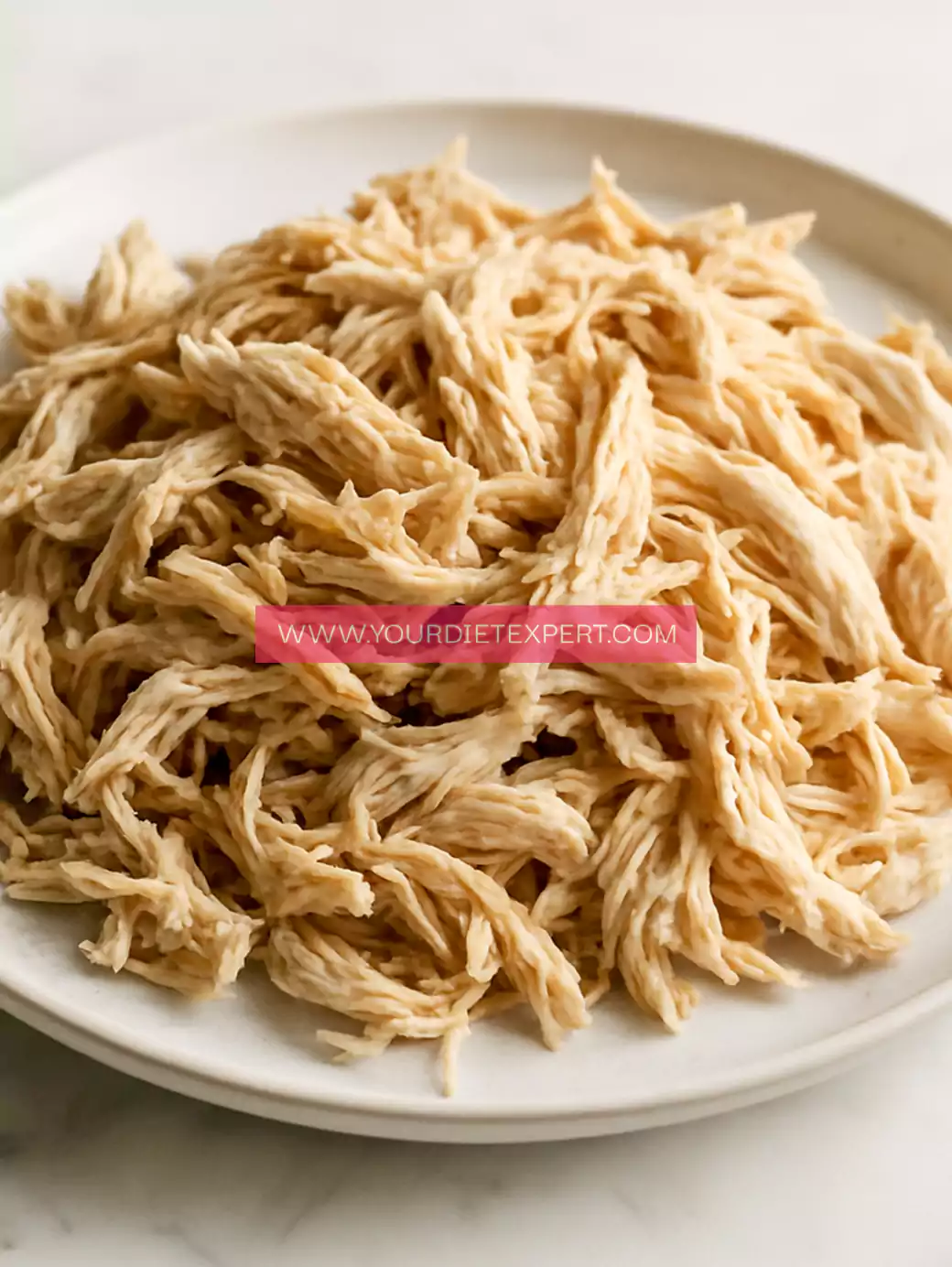
Yields: ~4 cups shredded cooked (8–12 toddler portions)
Time: 20–30 min (oven & stovetop), 12–15 min active for Instant Pot
Why multiple methods? Use whichever fits your schedule and appliances.
A — Oven (simple, hands-off)
Ingredients: 2–3 boneless, skinless chicken breasts (about 1.5–2 lb), 1/4 cup low-sodium chicken broth or water, 1 tsp olive oil (optional).
Method
- Preheat oven to 375°F (190°C). Place breasts in a shallow baking dish. Pour broth around (not over) breasts. Brush with oil if desired.
- Cover tightly with foil to trap steam — this helps keep meat moist. Bake 20–25 minutes depending on thickness. Use an instant-read thermometer: internal temp 165°F (74°C).
- Remove from oven and let rest 5–10 minutes (resting keeps juices). Use two forks to shred into bite-sized pieces. Alternatively, place in a stand mixer on low for 20–30 seconds to shred quickly.
- If using for toddlers, check for any cartilage or stringy bits and remove.
B — Instant Pot / Pressure Cooker (fast & tender)
- Place chicken breasts on trivet with 1 cup broth. Set to Manual / High pressure for 10 minutes for medium breasts (fresh). Natural release 5 minutes, then quick release. Shred.
C — Stovetop poach
- Place breasts in a pot, cover with water and 1 tsp salt (optional). Bring to a simmer, reduce heat to low and simmer gently 12–15 min until 165°F. Remove and shred.
Storage & portioning
- Refrigerate up to 4 days. Freeze in 1-cup portions for up to 3 months.
- Thaw overnight in fridge. Reheat briefly in skillet with a splash of broth to keep moist.
Toddler serving: 1–3 tbsp depending on meal and age.
Uses: Rice bowls, quesadillas, pasta, mini sandwiches, mixed into veg mash.
Troubleshooting
- Dry chicken: add a splash of broth when reheating. Use gravy or mashed avocado to moisten for picky toddlers.
Approx nutrition (2 tbsp shredded chicken): ~30–40 kcal; 6–8 g protein.
4) No-Bake Oat Energy Bites (child-friendly)
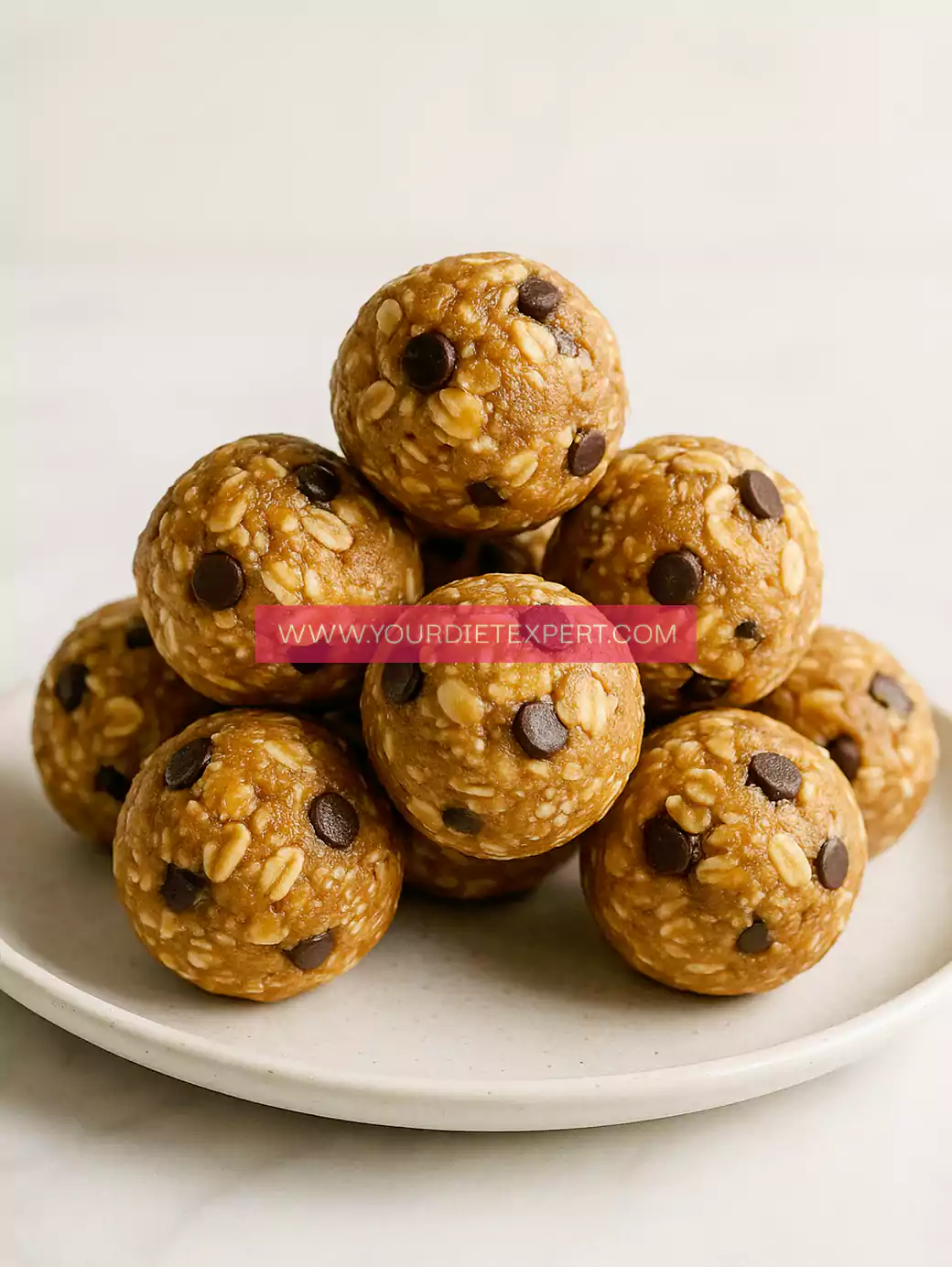
Yields: ~12–16 small bites
Time: 10–15 min (plus chill)
Ingredients
- 1 cup rolled oats
- 1/2 cup sunflower seed butter (nut-free option) or peanut/almond butter
- 1/4 cup grated apple or mashed banana (drain excess moisture)
- 2 tbsp honey or maple syrup (omit for <12 months)
- 1 tsp cinnamon, optional
- 2 tbsp mini raisins or mini chocolate chips (optional, older toddlers)
Method
- In a bowl, stir sunflower butter + honey until smooth. Add apple or banana and mix.
- Add oats and cinnamon. Mix until the mixture holds together when pressed. If too dry add 1 tbsp water or milk; if too wet add more oats.
- Scoop teaspoon quantities and roll into 1-inch balls. Press firmly to compact.
- Chill in fridge 20–30 minutes to firm up.
Storage
- Refrigerate up to 10 days. Freeze for longer storage.
Toddler serving
- 12–18 months: half a small ball.
- 18–36 months: 1 small ball.
Safety note: For under 1 year, omit honey and use single-ingredient purees; check with pediatrician before giving new ingredients.
Troubleshooting
- Crumbly: add a splash of milk or a touch more sunflower butter.
- Too sticky: add more oats.
Approx nutrition (1 small ball): ~90–120 kcal; 2–3 g protein.
5) Soft Veg & Bean Mash (iron + fiber)
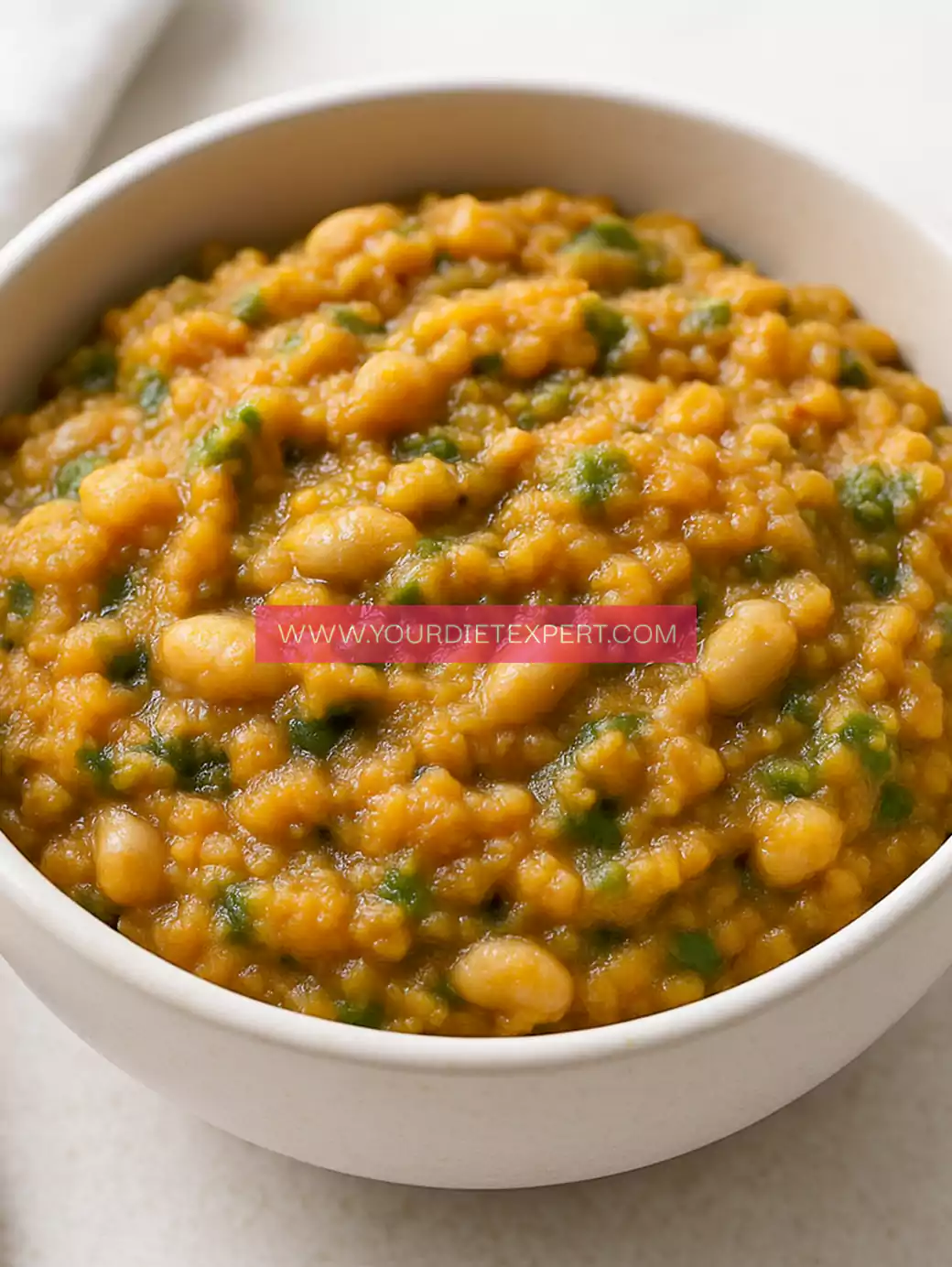
Yields: ~4 toddler portions
Time: 15–20 min
Ingredients
- 1 medium sweet potato, peeled & diced small
- 1 cup canned cannellini or navy beans, rinsed & drained
- 1 tsp olive oil or 1 tsp unsalted butter
- 1–2 tsp orange juice or squeeze of lemon (vitamin C improves iron absorption)
- Pinch cinnamon or mild herb, optional
Method
- Steam sweet potato: Place diced sweet potato in steamer or small pot, cover with about 1/2 inch water, and cook until very tender (10–12 min). Fork should pierce easily.
- Warm beans: While potato cooks, warm beans in small saucepan with a splash of water for 2–3 minutes. If beans are firm, mash slightly with fork.
- Mash: In a bowl, combine potato + beans + olive oil. Mash to toddler-preferred texture — fully smooth for younger feeders or a slightly chunkier mash for older toddlers. Add orange juice for a hint of sweetness and vitamin C.
- Cool & serve: Make sure the mash is lukewarm before serving.
Storage & use
- Refrigerate up to 4 days. Freeze in 1-cup portions. Use as a base for rice bowls or spread on toast.
Toddler serving: 2–3 tbsp.
Troubleshooting
- Dry mash: add a splash of milk or broth.
- Bland flavor: add a tiny knob of unsalted butter or sprinkle of mild cheese (older toddlers).
Approx nutrition (per 1/3 cup): ~80–100 kcal; 3–4 g protein.
6) Mini Turkey (or Lentil) Meatballs — toddler-friendly

Yields: ~24 mini meatballs (8 toddler portions)
Time: Prep 10 min | Bake 15–18 min | Cool 10 min
Ingredients
- 1 lb ground turkey (or 2 cups cooked lentils for vegetarian)
- 1/2 cup oat flour or breadcrumbs
- 1 large egg (or flax “egg” for vegan)
- 1/2 cup finely grated carrot + 1/4 cup finely chopped onion or shallot (sauté and cool if raw onion bothers toddler)
- 1 tsp dried Italian herbs (optional)
- 1 tsp olive oil (for pan or to grease sheet)
Method
- Prep veg: If using onion, sauté briefly until translucent to remove sharpness and cool. Grate carrot.
- Mix: In a bowl combine turkey, oat flour, egg, veg, and herbs. Mix gently — overmixing makes meatballs dense. If mixture is sticky, add a tablespoon more oat flour.
- Form mini balls: Wet hands slightly and roll pea-sized balls (1 inch). Place on a lined baking sheet.
- Bake: Preheat oven to 375°F (190°C). Bake 15–18 minutes until internal temp 165°F for turkey. For lentil version, bake until firm and lightly golden.
- Cool & trim: Cool completely and remove any hard edges. Cut one open to ensure no raw center.
Storage
- Refrigerate 3–4 days; freeze up to 3 months. Reheat gently on skillet with a splash of broth or in microwave covered.
Toddler serving
- 12–18 months: 1–2 meatballs cut into small pieces.
- 18–36 months: 2–4 meatballs.
Allergy & swap notes
- Use lentils + egg binder for vegetarian option (add a touch of flour). For egg allergy, use mashed sweet potato (1/4 cup) + 1 tbsp ground chia as binder.
Approx nutrition (2 mini meatballs): ~80–100 kcal; 6–8 g protein.
7) Creamy Yogurt Parfait Jars (grab & go)

Yields: 4 small jars
Time: 5–8 min to assemble
Ingredients (per jar)
- 1/2 cup plain Greek yogurt (or fortified dairy-free yogurt)
- 2 tbsp mashed or diced soft fruit (banana, peach, berries)
- 1–2 tbsp crushed low-sugar cereal or soft granola (add at serving to retain crunch)
- 1 tsp ground flax or chia (optional)
Method
- Spoon 1/4 of yogurt into bottom of jar. Add a layer of fruit, then another layer of yogurt to top. Seal jar. Keep crunchy topping separate in small bag.
- At serving, add crushed cereal/granola for texture.
Storage
- Refrigerate up to 3 days (if granola separate). Use within 24 hours if using fresh berries that juice quickly.
Toddler serving
- 1 small jar (about 1/2 cup).
Notes
- For picky eaters, swirl a small amount of fruit puree into yogurt to disguise texture changes.
- For under 2s, whole milk yogurt provides calories and healthy fats.
Approx nutrition (per jar): ~150–180 kcal; 7–10 g protein.
8) Simple Toddler-Friendly Tuna Salad (yogurt base)
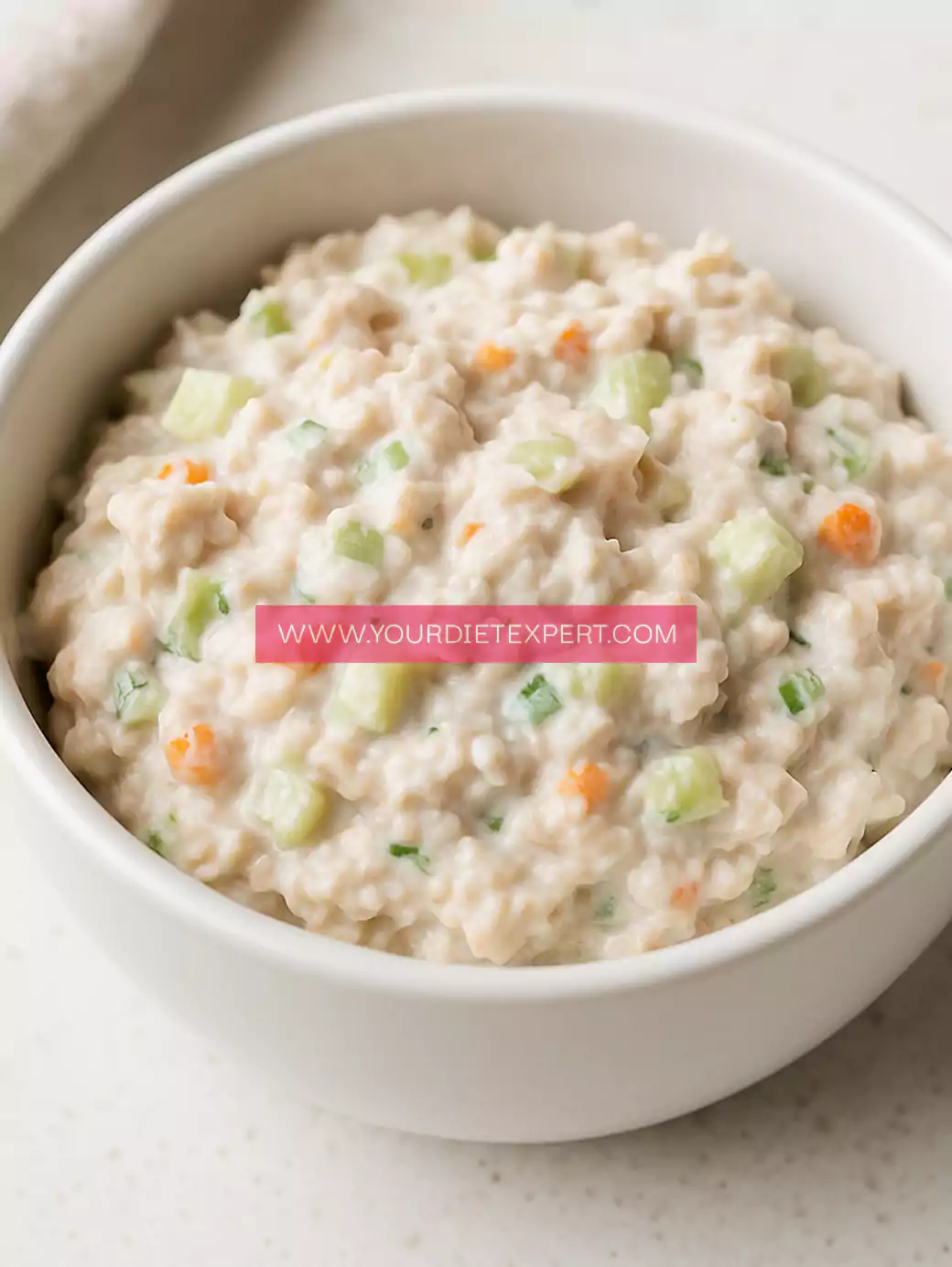
Yields: ~3–4 toddler portions
Time: 5–8 min
Ingredients
- 1 can low-mercury tuna in water, drained and flaked
- 2 tbsp plain Greek yogurt (or mashed avocado)
- 1–2 tbsp cooked peas or finely diced cucumber (optional)
- 1 tsp lemon juice, a pinch of dill (optional)
Method
- Flake tuna and mix with yogurt until creamy. Add tiny peas or cucumber for texture. Adjust lemon to taste but keep mild.
- Serve on soft whole-grain toast cut into small pieces or in a small tortilla roll.
Storage
- Refrigerate up to 48 hours. Discard if left at room temp >2 hours.
Toddler serving
- 1–2 tbsp tuna salad.
Safety note
- Follow pediatric guidance on fish frequency and portion sizes for toddlers.
Approx nutrition (2 tbsp): ~40–50 kcal; 5–6 g protein.
Freezing, thawing & reheating — clear rules
- Cool all cooked food quickly (spread in a thin layer on a tray) before bagging.
- Label with date and contents.
- Freeze portions flat in freezer bags for quick thawing.
- Thaw overnight in the fridge when possible. Reheat to steaming hot and then cool to lukewarm for toddlers. Stir and test before serving.
- Use most refrigerated cooked items within 3–4 days.
Sample 7-Day Toddler Menu (mix & match leftovers)
I’ll keep meals simple and repeat favorites.
Day 1 — Breakfast: 2 mini egg muffins + banana. Lunch: Shredded chicken rice bowl (2 tbsp chicken, 3 tbsp rice, 2 tbsp veg). Snacks: energy bite + yogurt parfait. Dinner: Soft veg & bean mash + small pasta.
Day 2 — Breakfast: 3 oat pancake bites + yogurt. Lunch: Tuna salad on soft toast + steamed carrot coins. Snacks: mini meatball + fruit. Dinner: Chicken & veg soup (use shredded chicken + broth + soft veg + small pasta).
Day 3 — Repeat Day 1 with swapped snacks. Rotate breakfasts to prevent boredom.
(Repeat format through Day 7 — reuse components to minimize cooking.)
Grocery list for 1 week (small family / toddler focus)
Produce: bananas (6), apples (4), sweet potato (2), carrots (6), spinach (1 bag), broccoli (small head), berries (1–2 pints), avocado (2), lemons (2).
Dairy & proteins: eggs (2 dozen), Greek yogurt (1 large tub), chicken breasts (2–3 lb), ground turkey (1 lb), canned tuna (2), cottage cheese (optional).
Pantry: rolled oats, oat flour (or make it), whole-grain rice/pasta, canned beans, sunflower/peanut butter, honey/maple, low-sugar cereal/granola, olive oil.
Frozen: peas, mixed berries (optional).
Misc: silicone liners, storage containers, labels.

Picky-eater hacks & kid psychology
- Let toddlers help assemble parfaits or add toppings — ownership increases acceptance.
- Use fun names (Power Bites, Sunshine Muffins).
- Keep portions small — “taste” portions reduce pressure and waste.
- Introduce new foods alongside a well-loved item; repeat exposure matters.
Final checklist before you batch cook
- Read each recipe fully first.
- Set timers for each oven/stove step.
- Label containers with contents & date.
- Keep one “emergency” meal in freezer for busy days (a full tray of mini muffins or a portioned rice bowl).
Disclaimer
This article is for informational purposes only and is not a substitute for professional medical advice. Always consult your pediatrician or a registered dietitian regarding your child’s specific dietary needs.
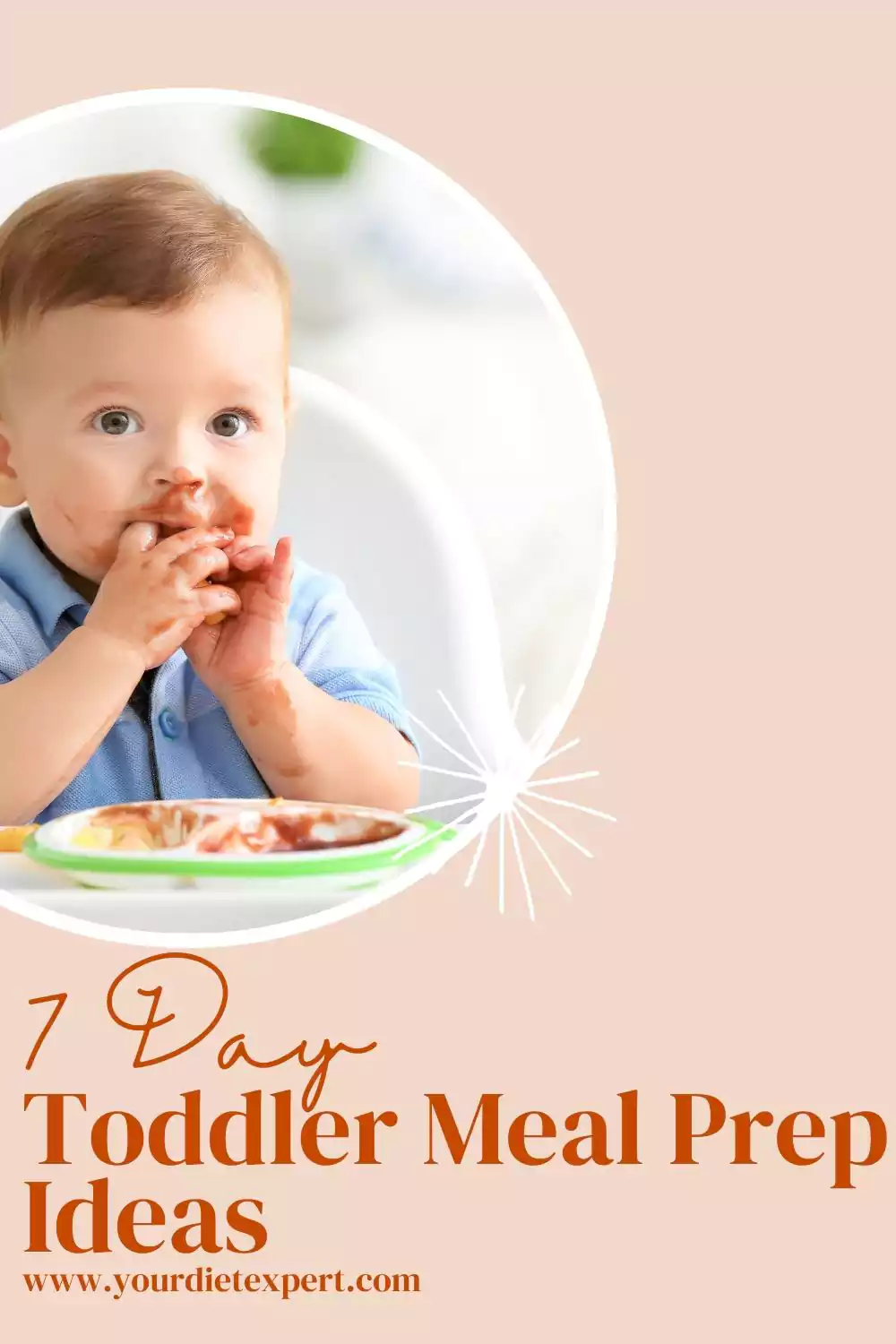
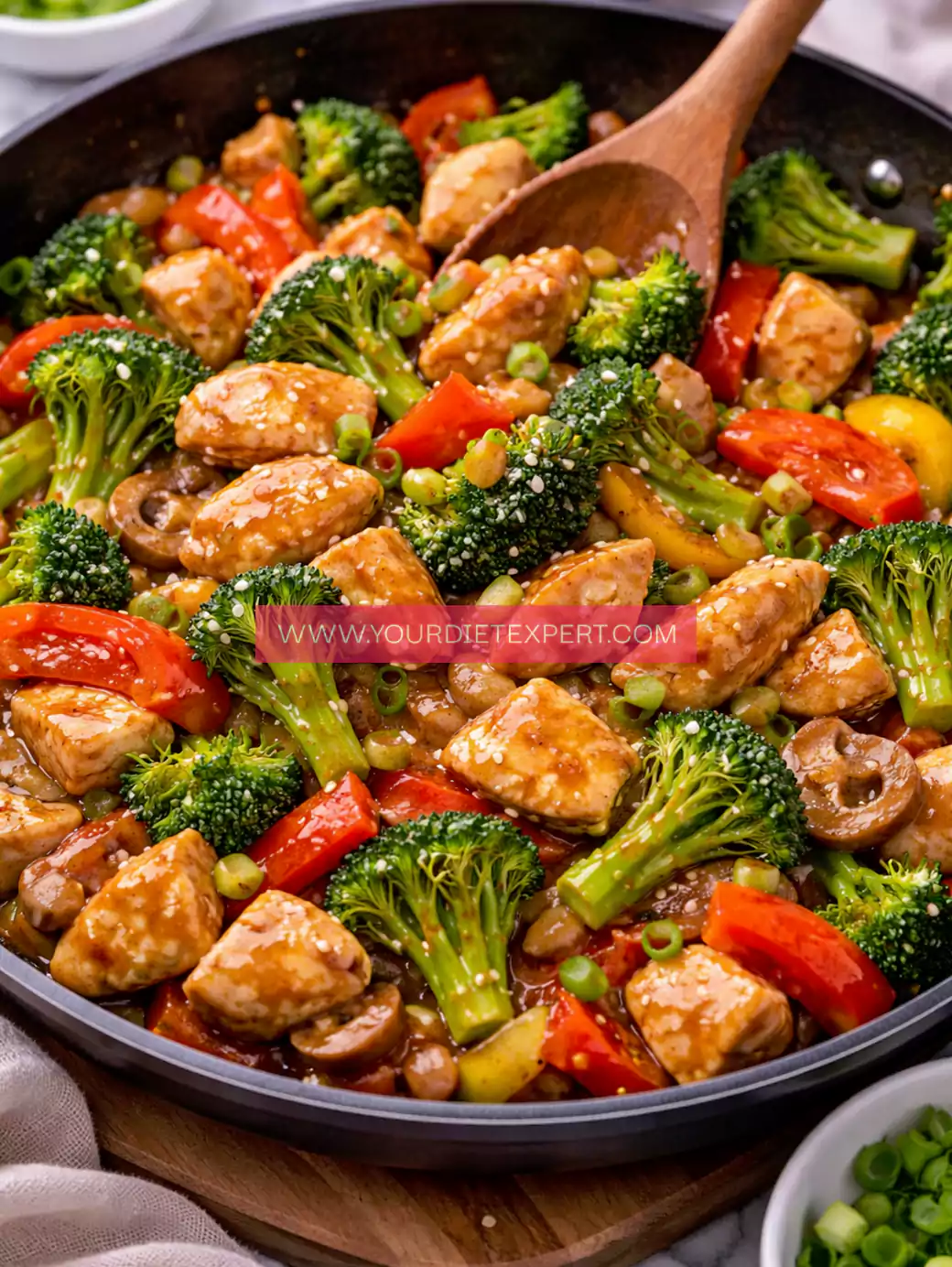
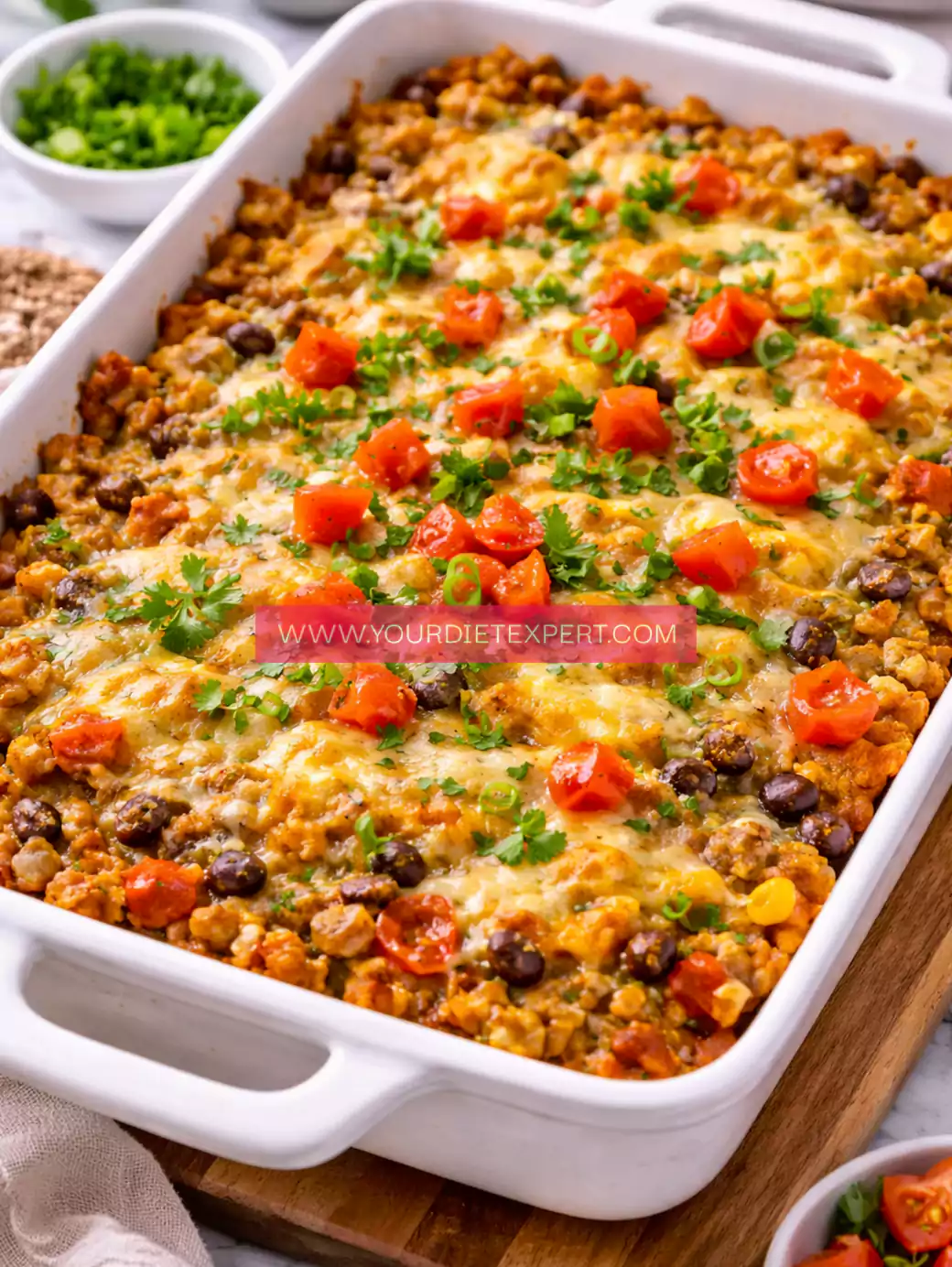
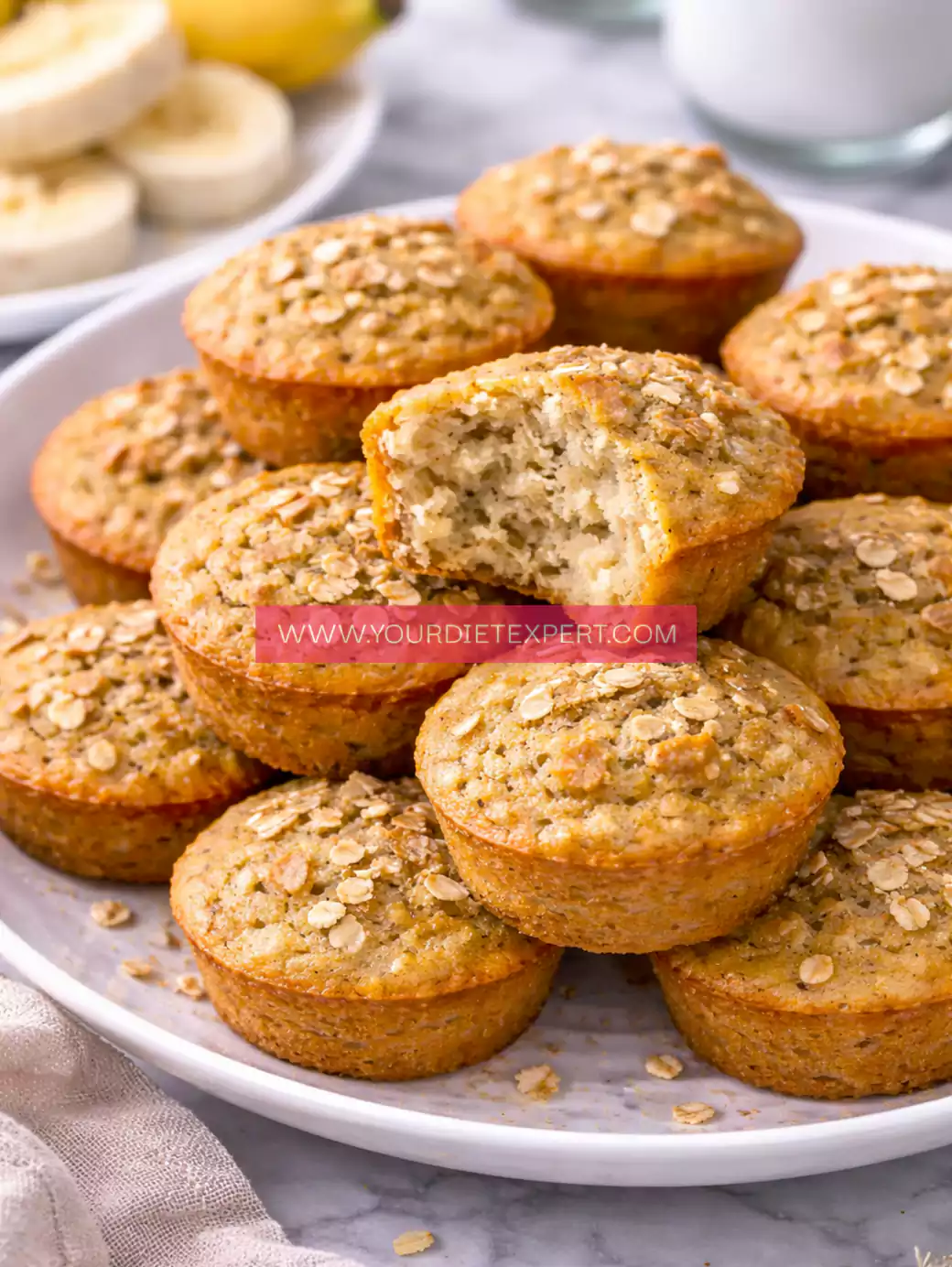
Leave a Reply